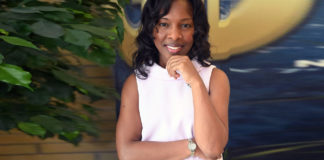Reacting to the worst news
In a conversation with Dr. Shelly-Ann Bowen, we discussed her research on what determines whether someone will be active or passive in the face of catastrophic events—fires, floods, or a cancer diagnosis. Social injustice, a lack of self-awareness, and even an immature understanding of faith paralyse action. But there are ways to make positive changes.
The basics of how to communicate effectively
Today, communication is becoming easier thanks to technology, which makes it faster and more accessible. Unfortunately, this does not necessarily mean that we know how to communicate effectively.
How to survive the loss of a child
“I knew her face better than my own. Still, I had to say goodbye. I had to walk away. That’s what you do when someone dies. Except this wasn’t just someone. It was Ana, my sweet girl.”
My child is unique and God knows it
As Christian parents, the most important legacy we want to leave our children is faith in God.
(Dis)connecting
In its first two decades, the 21st century has already received several titles: the century of speed, the era of information, or the digital era. In a constantly connected world, does authentic disconnection still exist?
The end of a matter is better than its beginning
Most of us have been urged since we were little to not give up, to carry on, and to “go our own way”. The idea that giving up is a negative choice, a synonym for failure, or a sign of cowardice or inability, is deeply embedded in our minds.
Getting your kids to do chores
You wouldn’t think so, but whether or not children do chores is one predictor of their future happiness and success.
Cardboard therapy
“So, is it like Monopoly?” The response is often amusing when a family member, friend or acquaintance discovers I’m “into board games”. Most are taken aback, shocked that an otherwise seemingly well-adjusted adult man would find so much enjoyment in a children’s hobby.
How chefs became celebrities
What do a foul-mouthed, drug-abusing Canadian, a stately Frenchman from Bourg-en-Bresse and an American businesswoman whose prison nickname was “M Diddy”, all have in common?
The fascination of eternal freedom in a communist regime
The biggest surprise of 1989 was the speed with which the communist regimes in Europe collapsed. Their collapse occurred as quickly as their establishment. Two personalities played an undeniable role in undermining a communist regime that seemed to be eternal.
Dante’s imaginary translation of the torments of Hell
At the age of nine, the young Dante Alighieri fell hopelessly in love with Beatrice Portinari, a young woman of about the same age, whose image would haunt him for the rest of his life and inspire one of the most famous female characters in universal literature.
The little freedom fighter
When you look into the innocent eyes of a child, you can hardly imagine that someone could intentionally hurt them. Stories of slavery seem to belong to an evil and distant past. However, few of us wonder who makes our clothes or electronic equipment, under what working conditions, and how much they are paid for it. The answers to these questions will likely...
A cure for loneliness
At the age of 34, Joseph already has his own business, into which he has invested much of his soul and talent. He is a carpenter, and the personality of the pieces he carves, chisels, polishes, and paints with his hands stands out beautifully. With each order he sends to a customer, Joseph takes some time to send a handwritten thank-you note. On...
More than the slaves of appearances
What is left of me after I shut down my computer, turn off my phone, or wipe away my makeup? What about after I quit my job, after I move, after I lose my health, after I get older? What if no one knew me—would I still be someone?
“The Clifford Goldstein story” | Book review
"The Clifford Goldstein story" is addressed to those who, ever so often, feel the need to read something about experimentation, because it is not about theorising a rebellious young man's search for the path of life, but rather a true-life story.


























